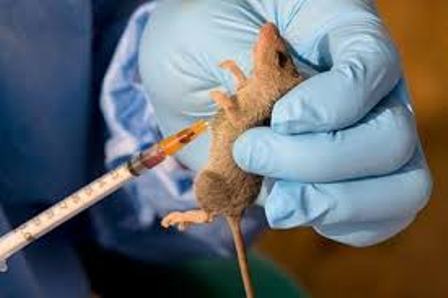… 2 doctors, 1 patient dead
The Nigeria Centre for Disease Control (NCDC) has confirmed the outbreak of Lassa fever in Ebonyi State.
The centre also confirmed the death of two doctors and a patient out of the four cases reported on Sunday January 14.
The Centre in a Press statement today, announced that the Federal Ministry of Health through the Nigeria Centre for Disease Control, in collaboration with the World Health Organisation (WHO) has commenced public health response in support of the Ebonyi State Ministry of Health.
“A Rapid Response Team has been immediately deployed from NCDC to support the State in response coordination, contact tracing, case management and strengthening infection prevention and control (IPC) procedures. The NCDC has also provided urgently required medical supplies and drugs to support case management in the State,” the statement said.
The Secretary General of the National Association of Resident Doctors (NARD), Dr. Osinachi Nnadi in a circular to his colleagues yesterday identified the dead victims as two Resident Doctors, Dr. Felix Ali and Dr. Abel Sunday Udo and a patient.
“Dr Felix Ali had complications of Lassa fever and he was taken to Irrua Specialist Hospital, Irrua where he eventually died. Dr Abel Sunday Udo, operated on a patient three weeks ago suspected to have had Lassa fever and he died this afternoon (January 14). He also lost the patient.
“The House Officer and the nurse that joined him in the surgery are presently on their way to Irrua Specialist Hospital, Irrua for expert care,” Dr Nnadi further informed.
Lassa fever is a viral hemorrhagic disease, caused by contact with food or household items contaminated with rodent urine or faeces. The Lassa virus may also be spread between humans through direct contact with blood, urine, faeces, or other bodily secretions of a person infected with Lassa fever.
The Chief Executive Officer of the NCDC, Dr Chikwe Ihekweazu said: “Health care workers in health facilities are particularly at risk of contracting the disease, especially where infection prevention and control (IPC) procedures are not strictly adhered to. We therefore strongly advise that health care workers practice universal care precautions while handling patients at all times, not just when Lassa fever is suspected.
“We commiserate with the Federal Teaching Hospital, Abakaliki (FETHA) and Ebonyi State Government, and will support them to avert a future occurrence.”
The statement further stressed the need for the public to embrace available preventive measures as there is still no vaccine currently available for Lassa fever.
“Members of the public are advised to keep their environments clean in order to discourage rats from entering homes. Food stuff should be stored in rodent-proof containers, garbage should be disposed properly and far from the home, and hand washing should be practiced frequently.
“Health care workers are again reminded that Lassa fever presents initially like any other disease causing a febrile illness such as malaria; and are advised to practice universal care precautions at all times. Rapid Diagnostic Test (RDT) must be applied to all suspected cases of malaria. When the RDT is negative, other causes of febrile illness including Lassa fever should be considered.
“Extra caution should be taken by family members who are providing care for patients with Lassa fever. In addition, States are encouraged to ensure safe burial practices for patients who die from Lassa fever.
“The National guidelines for Infection Prevention and Control, as well as Lassa fever case management have been developed, disseminated to States and are available on the NCDC website for download (http://ncdc.gov.ng/diseases/guidelines),” the statement further said.





